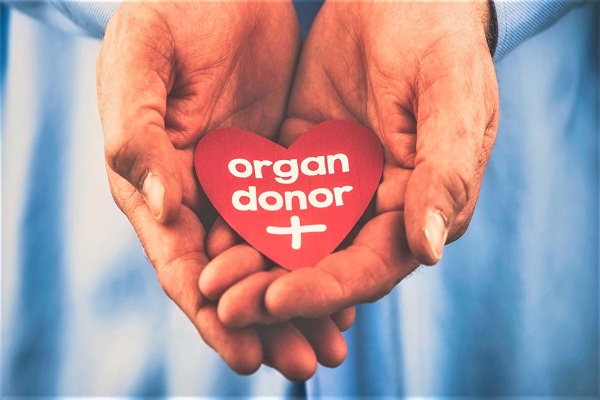UK Muslim Scholar Issues Fatwa on Organ Donation

Mufti Mohammed Zubair Butt, a leading Sunni scholar has reviewed the current guidance on organ donation within the Muslim community, engaging with other UK based scholars, Imams and Muslim organizations to introduce a fatwa from a Sunni perspective and address a number of concerns that the Muslim community may have around organ donation.
This is not the first fatwa to be published in the UK on organ donation - preceding ones were released in 1995 and 2000.
This new fatwa draws upon the four established Sunni schools of Islamic jurisprudence and looks to complement the existing knowledge and serve as a discussion document for Imams, Muslim chaplains and scholars.
The Fatwa states,
“The use of prostheses is permissible. The transplant of pure animal organs and tissue is permissible, but the transplant of impure animal organs and tissue is not permitted unless there is no permissible alternative.
Replant and autotransplant of human organs and tissue is permissible.
Living/altruistic organ donation is permissible provided harm to the donor is negligible or relatively minor that it does not disrupt the life of the donor.
Organ donation after circulatory determination of death (DCDD) is permissible provided the point of elective irreversibility has lapsed.
Organ donation after neurological determination of death (DDDB) following complete and irreversible loss of brain function, is permitted only once the point of elective irreversibility has lapsed and the heart has stopped.
Deceased organ donation and transplantation of all organs/tissues besides the gonads is permissible.
It is permitted to donate stem cells from adult tissue, tissue of a minor with parental permission, cord blood, a miscarried foetus, a foetus aborted for a reason valid in sharīʿa, and a surplus embryo incidental to the process of IVF. However, stem cells obtained through therapeutic cloning are not permitted.”
The new fatwa is the culmination of several years’ work supported by NHS Blood and Transplant and comes at a crucial time.
Following the successful experience in Wales, where consent rates for organ donation have significantly increased after introducing ‘opt out’ in 2015, Scotland, Isle of Man and Guernsey also plan to introduce new legislation while Jersey will implement a new consent system on July 1.
From spring 2020, the consent system in England will move to ‘opt out’.
Just like the current system, people will still be able to decide whether or not they want to donate their organs when they die, and families will always be approached about whether their relative would have wanted to be an organ donor and belief and cultural considerations will be discussed with families.
Mufti Mohammed Zubair Butt said: “I sincerely hope that this fatwa will bring some clarity on a variety of widely held concerns around the permissibility of organ donation and transplantation and will serve as a catalyst for Imams, Muslim chaplains and scholars to discuss the issue amongst themselves and with their congregations and audiences.”
The new religious edict covers all forms of donation, including blood, stem cells, living donation and organ donation after death.
The document acknowledges that organ donation saves lives and states that donation after death is permissible, providing all requirements have been satisfied to indicate the departure of the soul from the body.
Only 31% of Muslims surveyed recently said that they support organ donation, with just 14% of those strongly supporting – while 37% oppose donation, with 25% of them strongly opposing.
NHS Blood and Transplant hopes that the new fatwa will lead to more Muslims in the UK accepting that organ donation can go ahead in line with their faith and that more will agree to sign up to become organ donors.
Amjid Ali, a Muslim transplant recipient with a history of kidney disease, has been working with NHS Blood and Transplant as the lead on the Transplantation in Islam project and secured Mufti Mohammed Zubair Butt’s commitment to producing the updated fatwa.
Amjid said: “Religious and cultural factors continue to play a significant role in deterring members of our diverse Muslim communities living in the UK from exploring the humanitarian and social benefits of organ donation.
"I wanted to understand why people from my own community weren’t donating, and crucially work with trusted Muslim faith leaders to reach a consensus opinion. I had heard far too often Muslims say they can’t donate because it’s not in line with their Muslim beliefs.
“In my mind, to have any chance of changing attitudes and action around organ donation among British Muslims, guidance needed to come from respected and suitably experienced Independent Islamic scholars, and most crucially for the majority of Muslims in the UK, Islamic scholars with an expertise in Islam and medical ethics.”
Three people die on average every day in need of an organ transplant because of the shortage of suitable organs.
The best match will usually come from someone with the same ethnic background and there is a particular shortage of organ donors from black, Asian and minority ethnic communities.
Source: The Asian Image
 Most Commented
Most Commented 


